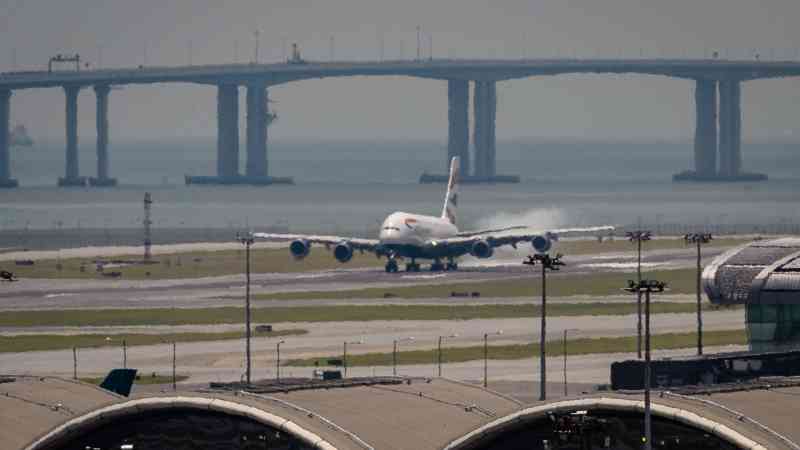Why I’m putting all my money in just one global tracker fund
When global stock markets plunge, I sit back and try not to worry. About 80 per cent of my investment portfolio is in a single tracker fund.
On what was dubbed Meltdown Monday, the FTSE 100 index of Britain’s biggest businesses dropped 2 per cent at the start of the week and Japan’s Nikkei 225 was down a hefty 12 per cent. As America woke up, its own Dow Jones index lost about 3 per cent and the tech-focused Nasdaq was down almost 5 per cent.
Behind all the moving and shaking were fears about a US recession. Jobs data from across the Pond was weaker than expected, and the price of US government bonds (known as Treasuries) seemed to suggest a downturn. Japan is taking action to try to curb inflation and there are concerns about manufacturing numbers.
• How to invest £10,000
Whenever volatility rears its head on global markets, investors ask themselves the same question: Should I sell, or is this a great buying opportunity?
The answer is neither. Put the kettle on and watch the Olympics, because in the long run, none of it will probably matter.
If you are the sort of person who is so nervous about your investment portfolio that you panic at the first sign of uncertainty, the answer could in fact be this: get a global tracker fund.
Actually, I think that might be the answer for those of us who are not predisposed to panic too.
My global tracker fund invests in 7,125 companies across more than 20 countries. It is up about 14 per cent over the past year and it charges a measly 0.23 per cent (about £2.30 for every £1,000 invested). A direct debit means I add more money to it every month without even having to think about it. If only everything in life were so simple.
On Monday, my tracker fund moved a morsel, but nothing more — certainly not enough to get me worried about my retirement prospects. Because the chance of those 7,000-odd shares all dropping at the same time is very slim indeed. After all, on the same day that shares in the engineering giant John Wood group plunged 35 per cent, Petrofac was up almost 6 per cent. And the day after all the hysteria, the Nikkei had bounced back 10 per cent while the FTSE was nearly back to where it was before the meltdown by the end of Tuesday. Anyone who had already hit the panic button missed out on these gains.
I wasn’t always this way. In the past, I have had a portfolio stuffed with active funds and investment trusts. I’ve backed tech stocks, smaller companies, frontier markets, gold — you name it. Some of these did very well, and others did not.
But what I have come to realise, through more than a decade of trial and error, is that if you can just get the return of the market, you are actually doing pretty well.
I’m not the only person who has come to this conclusion. Collectively, we have about £355 billion invested in tracker funds, up from £292 billion only a year ago, according to the Investment Association, an industry body.
• Our best investment platforms for beginners
Why? Because trackers, also known as passive funds, which aim to copy a chosen index or asset, are cheap and easy to understand. For quite literally a few pounds a year, they let you own a slice of thousands upon thousands of companies from across the globe. There are no decisions to make or complicated strategies to understand — just put your money in and get on with life.
Compare that with the bamboozling array of 3,000 or so actively managed funds all promising to beat the market with their various strategies. They cannot all win.
It has been proved, time and again, that it is impossible to predict the stock market — even if you are a highly paid professional. The latest Manager versus Machine report from the investment platform AJ Bell found that 35 per cent of active equity funds beat the average passive fund in their sector last year. The same proportion, 35 per cent, beat the index over ten years. You do not need me to tell you that those are not fantastic odds.
A global tracker fund will not double your money overnight. When those rare superstar stocks come along that shoot the lights out, your exposure will be so minimal that you will barely benefit. But this is the trade-off you make for a smoother investment journey.
The superstar stocks are few and far between, and almost impossible to spot. Spare yourself the stress and get a tracker fund. At the very least, next time the stock market goes kaput, you’ll get a decent night’s sleep.






